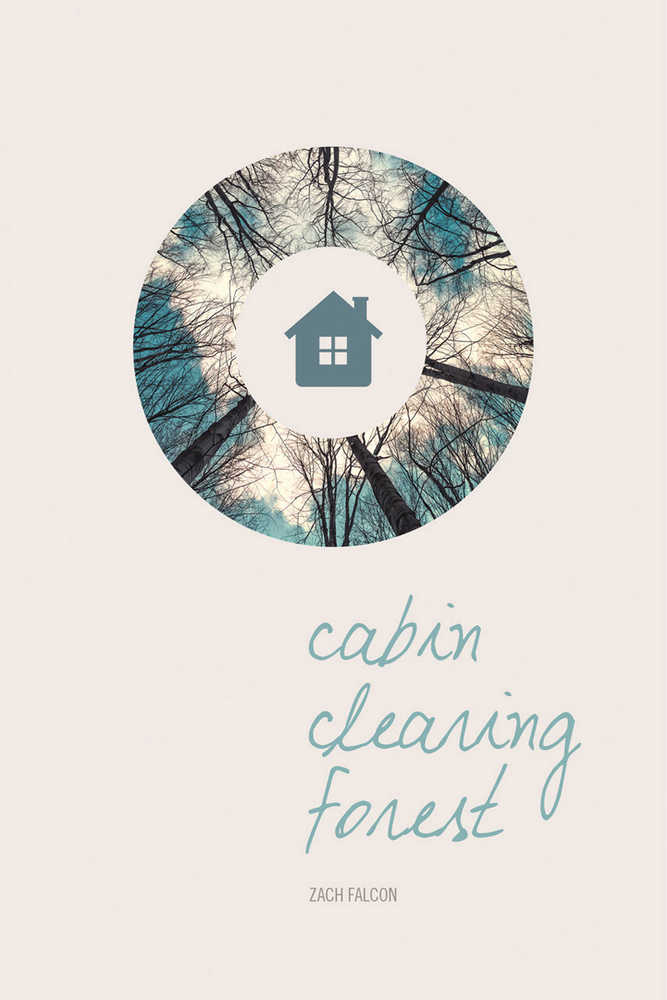Ask an outsider to name a few of the most life-threatening things in Southeast Alaska and you might get: man-eating grizzly bears, float plane crashes, hypothermia.
Ask someone who grew up here about the threats he experienced or witnessed in his home town and his answer might be very different: substance abuse, depression, and the specific kind of claustrophobia that comes from living in a remote place with no roads.
Former Juneau resident Zach Falcon has focused on the latter set of dangers in his new book of short stories, “Cabin, Clearing, Forest,” released last month by the University of Alaska Press. Nearly half of the 13 stories are set in Juneau, where Falcon moved with his mother and sister when he was 8. Few of the place names have been changed; his characters live on Starr Hill and Gastineau Avenue, go fishing on Thane Road, and make trips to Foodland. They also get beat up and arrested in front of the Imperial Bar, get pissing-their-pants drunk Out the Road, and make desperate attempts to leave town, pursued by fears of mildewy childhood bedrooms and unfulfilled adult dreams.
Falcon’s characters — their trapped lives, alcohol issues, and isolation — may put some local readers on the defensive, especially those for whom this kind of angsty restlessness is uncomfortably familiar (it doesn’t help that the book has been released in the fall, our least optimistic season).
But though the book is skewed toward the darker, sadder parts of life in Alaska, Falcon’s skill in presenting bleakly realistic, unidealized lives is central to the book’s considerable power.
On top of that — and more to the point for those who don’t live here — he’s an exceptional writer.
The first three stories in the book are set in Kodiak, where Falcon was born. This trio, “Cabin,” “Clearing” and “Forest,” reminded me at times of Melinda Moustakis’ “Bear Down Bear North,” particularly in the way Falcon sets the still-forming world of children against the unhappiness of the adults they live with.
“Cabin” begins this way:
“There are no secrets in small houses. The children, Mark and Hazel, knew things were wrong long before their parents admitted it. Before the seething quiet, before their father started sleeping on the couch, before their mother’s humor boiled away, leaving her reduced, thick, and bitter.“
As in the case of many darker works of art, moments of connection shine more brightly amidst the gloom, such as when another character, a young girl in “Forest,” comforts her brother after a series of traumatic events by telling him to picture himself as a brave pirate sailing the sea. “Forest” ends with these lines:
“Outside the wind rose in the night, creaking the darkening wood that grew ever closer upon the cabin. The children held each other, centered in the darkness at the edge of the world.”
The wilderness — often portrayed in Alaskan fiction as being frightening in its vast emptiness — is in these stories almost stifling, particularly when Falcon shifts locations to Juneau, where he spent much of his childhood and part of his adulthood (he now lives in Maine). Here Falcon’s characters pace around like caged animals, hemmed in by a heavy sky and “a fence of mountains,” barely penetrating — or even acknowledging — the miles and miles of forest that surround them.
One of the few references to Alaska’s celebrated beauty comes from a character who has moved away to the East Coast who is looking at a postcard from his mother.
“The picture on the postcard was of Juneau in summer… no one would believe a place could be so beautiful unless they had seen the real thing and knew it to be true.”
Though the use of actual place names pulls the reader toward reality, this is a work of fiction, one in which Juneau’s isolated location and unique environment reinforce universal themes: the way real life can fall far short of your expectations, and the struggle to come face to face with your own failed potential.
In “A Beginner’s Guide to Leaving Your Home Town,” the character Wade goes on a rant, talking about the successful novel he will one day write about the “real” Alaska, once he gets free of it. Though it’s iffy to conflate author and character, it’s worth noting that Falcon himself has made good on Wade’s dreams.
Maybe there’s hope for his characters after all.
• Contact arts editor Amy Fletcher at amy.fletcher@juneauempire.com.

